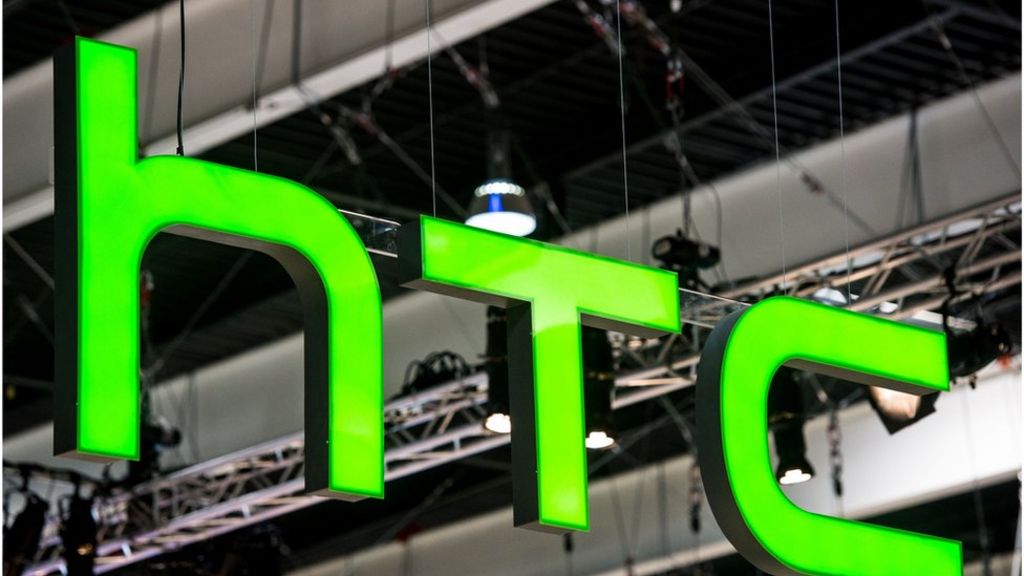Google Signs $1.1bn HTC Smartphone Deal

 Image copyright
Getty Images
Image copyright
Getty Images
Alphabet's Google has struck a $1.1bn (£822m) deal with Taiwan's HTC to expand its smartphone business.
Google will not take a stake in the firm, but some HTC staff will join the Silicon Valley giant.
The Taiwanese company was once a major player in the smartphone market but has struggled to compete with the likes of Apple and Samsung.
Google expects the deal to close by early 2018, provided it gets the all clear from regulators.
Shares in HTC were suspended in Taiwan on Thursday.
Betting on hardware
The deal marks the latest move by Google to boost its hardware capabilities.
"It's still early days for Google's hardware business," the firm's senior vice-president of hardware Rick Osterloh said in a blog post on Google's website.
Under the deal, Google will acquire a team of people who develop Pixel smartphones for the US company and receive a non-exclusive license for HTC's intellectual property.
It builds on an existing partnership between the two tech companies.
"These future fellow Googlers are amazing folks we've already been working with closely on the Pixel smartphone line," Mr Osterloh said.
According to HTC half their smartphone research and development team - about 2,000 people - will go to Google.
HTC manufactures Google's smartphones, the Pixel and Pixel XL. The company will release updated version of the devices next month.
Analysis - Dave Lee, BBC North America technology reporter, San Francisco
Yesterday, within just a few hours, most of Apple's millions upon millions of users were using the latest mobile operating system, having tapped on the prompt to download iOS 11.
Contrast that experience on Android, where the company's impressive and innovative updates are greatly hampered as it can take months, sometimes years, for those features to filter to users.
Google knows this disconnect between its software and hardware is a massive problem. And so this curious deal with HTC, which falls short of the rumoured buyout, is about solving that problem. If it can have close control over key premium devices, it can be more ambitious with its software.
In some respects, this $1.1bn deal is like a good friend lending their pal a few quid to tide them over for a while. HTC needs Google's money to keep going. And Google needs HTC's expertise and manufacturing capability to remain competitive with its mobile devices.
Deal benefits
The deal marks Google's second major foray into smartphone manufacturing. In 2011 Alphabet, then named Google, bought Motorola's Mobility for $12.5bn, only to sell it on three years later.
Geoff Blaber from CCS Insight said while the HTC deal might "raise eyebrows" given Google's history with Motorola, it will give the firm valuable design and engineering resources.
"The far bigger risk for Google would be to stand by and do nothing as hardware becomes an all-important means to an end for its core business," Mr Blaber said.
But the big winner is HTC.
"It's a much needed investment as HTC struggles to maintain its smartphone business and grow its early start in virtual reality," he added.
HTC makes Vive, the VR headset favoured by Google, as the alternative Oculus Rift is owned by Facebook.
Vive is reportedly outselling Oculus Rift by a margin of nearly two-to-one, albeit with still modest numbers, and is recognised by many as the superior system.
Get news from the BBC in your inbox, each weekday morning
From Chip War To Cloud War: The Next Frontier In Global Tech Competition
The global chip war, characterized by intense competition among nations and corporations for supremacy in semiconductor ... Read more
The High Stakes Of Tech Regulation: Security Risks And Market Dynamics
The influence of tech giants in the global economy continues to grow, raising crucial questions about how to balance sec... Read more
The Tyranny Of Instagram Interiors: Why It's Time To Break Free From Algorithm-Driven Aesthetics
Instagram has become a dominant force in shaping interior design trends, offering a seemingly endless stream of inspirat... Read more
The Data Crunch In AI: Strategies For Sustainability
Exploring solutions to the imminent exhaustion of internet data for AI training.As the artificial intelligence (AI) indu... Read more
Google Abandons Four-Year Effort To Remove Cookies From Chrome Browser
After four years of dedicated effort, Google has decided to abandon its plan to remove third-party cookies from its Chro... Read more
LinkedIn Embraces AI And Gamification To Drive User Engagement And Revenue
In an effort to tackle slowing revenue growth and enhance user engagement, LinkedIn is turning to artificial intelligenc... Read more

